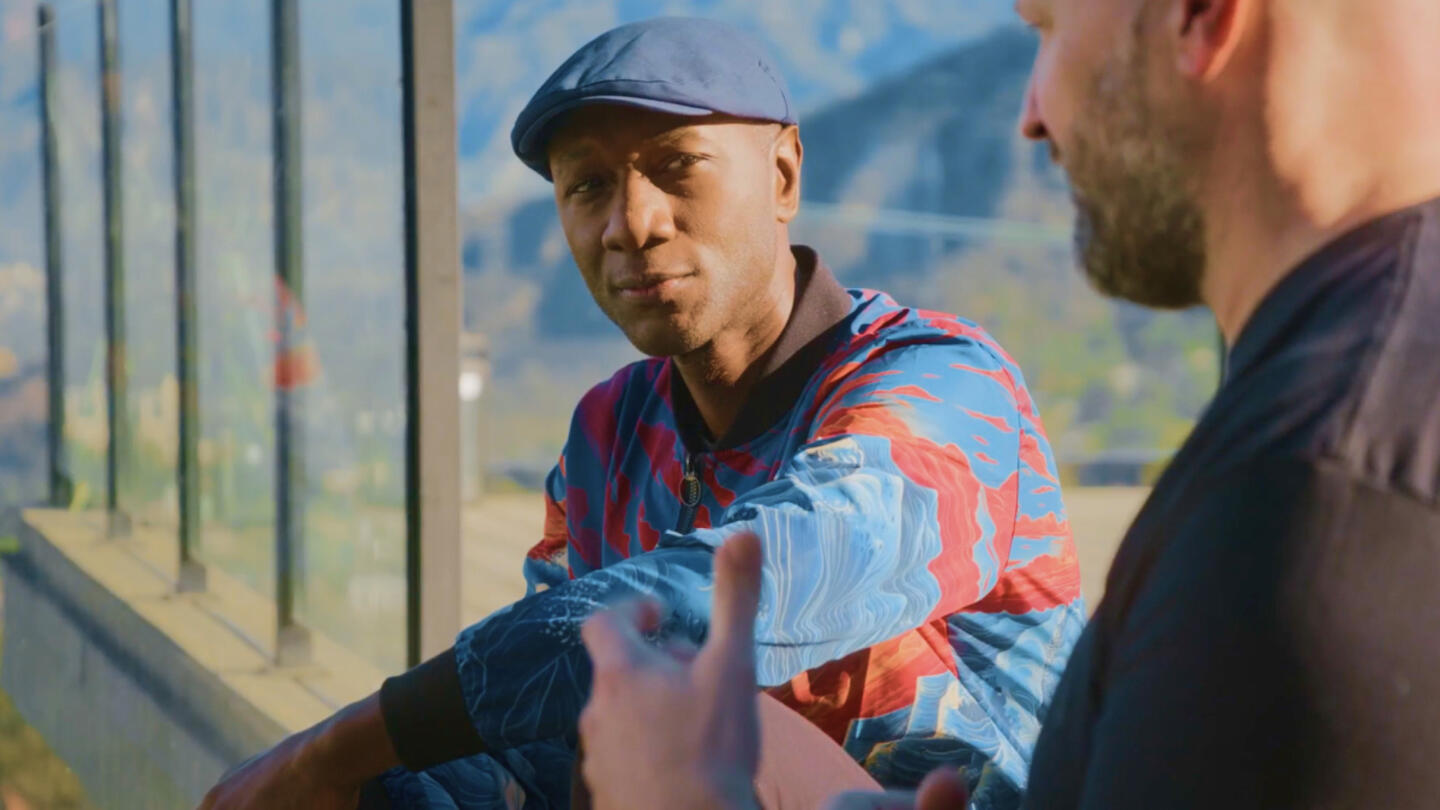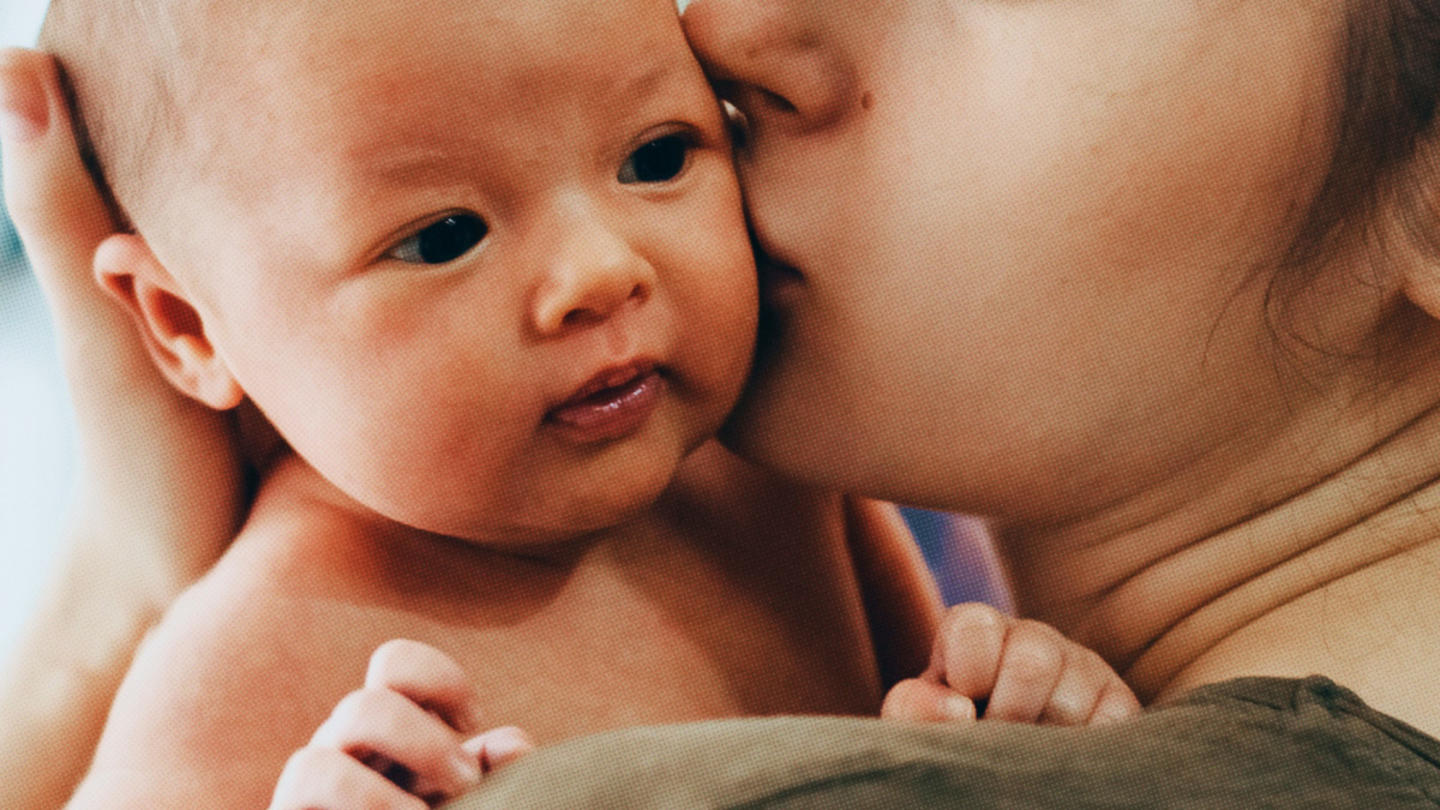Mariah hadn’t planned to use drugs while she was pregnant with her daughter, Glow. In fact, she was sober when she realized she was expecting, but she was also trapped in an abusive relationship.
“I had to do what he said. The whole time, it was like everything was blanketed with the ‘I love yous,’” she said, “but he would flatten the tires at night to keep me from going anywhere. I didn’t know he was using meth, and I was sober, and then I got pregnant.”
She felt isolated and trapped. She worried about her partner’s physical abuse and what it would do to her unborn child. “I was constantly getting harmed where Glow was, in the womb,” she said. “I noticed that on the days he had his drugs, I didn’t get hit.”
Having grown up steeped in abusive relationships, Mariah readily admitted her view of the world was not healthy. She believed that she only had two choices. “It was almost like I had to make the decision between abuse or using [drugs] and which one of those would hurt my baby the most,” she recounted. “So I did, I chose to use with him, and it made it manageable to make it through the day or make it through the week.”
Mariah‘s tears flowed when she talked about her choices. She couldn’t speak for several moments. When she was pregnant, she had known that she needed to do more to protect her baby, but she had to be careful. For months, she siphoned a few dollars at a time, hiding them in her shoe. Less than two weeks before her daughter’s birth, she finally managed to escape her abusive partner.
When Glow was born with substances in her system, Mariah again had to choose. She could allow Child Protective Services (CPS) to place Glow into foster care, or she could accept the community-led care of Brigid’s Path — a first-of-its-kind newborn recovery center that allows mothers who are struggling with addiction to stay close to their babies.
At first, Mariah was skeptical. “I didn’t trust anybody, not even people trying to help me,” she said. Having just gotten out of an abusive relationship, she didn’t feel safe around other people. “I wanted to be by myself with my baby. I just wanted to be left alone, so when they told me [about Brigid’s Path], I said no over and over again.”
Ultimately, she decided to try Brigid’s Path because her desire to stay with Glow was her primary motivator. That’s when her healing began. After a few short weeks, she was surprised at how she trusted the nurses and staff. “It became my home,” she said. “We became this little family.” They encouraged her and helped her gain confidence in her ability to be a good mother to Glow.
Brigid’s Path is a specialized medical center for substance-exposed babies to receive the care they need in their first months of life. A large part of that care is time with mom. “When mom comes in the door, the baby’s smiling, the baby’s calm,” said Founder Jill Kingston. “They know the mother’s scent. As baby goes through withdrawal and heals, moms also go through recovery and heal.”
Instead of separating and alienating mothers, Kingston’s program empowers them to create life-changing bonds with their babies and get the support they need to keep their families intact, all in a safe, healthy, homelike setting.
Mothers and babies affected by substance use heal together
For the past two decades, the opioid epidemic has spread at an alarming rate, but few areas have been hit as hard as Dayton, Ohio. It has been referred to as “ground zero” of the opioid epidemic.
“That’s not been something we’ve been real proud of,” said Kingston, “but the overdoses have been extremely high.” Babies are often the unseen and overlooked victims of this epidemic. “About 2,000 newborns a year in Ohio go through withdrawal in the hospital,” she said.
“We had babies that were starting on medication simply because nurses in the hospital did not have time to hold the babies and rock the babies,” said Dr. Lisa Jasin, clinical director at Brigid’s Path. She explained that when a baby goes through treatment in the hospital, CPS becomes involved, which results in 76% of those newborns going straight into the foster care system. It’s not a great solution, considering half the people experiencing homelessness and 75% of those in prison today previously spent time in foster care.
As a foster parent, Kingston saw firsthand that these newborns weren’t getting the care they needed. They were being left in the hands of ICUs and foster homes that couldn’t provide for their specific needs. “I can remember the moment that I was sitting there holding two babies who were in withdrawal, and no one knew how to help us,” she said.
She began to wonder if there was “somewhere else these infants could go.” This is what led her to found Brigid’s Path. “We realized that if moms and babies can live together and can grow together, they both heal.”
A growing body of research supports what Kingston knew instinctively: Mothers are the best medicine. When a mother participates in her baby’s recovery, the baby recovers faster and is less likely to need medication to help with withdrawal. Skin-to-skin contact between mother and baby cuts recovery time by a week. And, when mothers are given the opportunity to care for and console their babies, many of them start to feel their own value and the important role they have in this new person’s life. It’s a powerful new beginning.
Sign up for the Strong & Safe Communities newsletter for stories, ideas, and advice from changemakers working with their neighbors to address the biggest problems we face.
Community-led care is critical to recovery
Typically, when a mother shows up at the hospital and tests positive for substance use, the baby is sent to the NICU to go through withdrawal. Jasin said the mothers feel terrible guilt. “They know what the baby is going through with withdrawal because so many of them have gone through it themselves,” she said. But in the current system, the almost immediate separation means mothers aren’t able to do anything to help their babies.
Even if mothers opt to go into treatment, the vast majority of these babies still go straight into foster care. This perpetuates a cycle of long-term damage, especially since youth in foster care are at a significantly higher risk of using substances themselves. And, according to Kingston, breaking the bond between mother and child this early nearly always causes the mother to relapse. “They’ve lost that hope that they have a chance to parent,” she said.
Brigid’s Path offers a better way. “Our nurses, our PCAs [personal care assistants], they just surround the moms with love,” Kingston said. “We see a mom who has a new path in front of her with hope. [She] finally feels like she can be a good parent.”
Recovery requires more than just help from Kingston and her staff. Community support is a critical component. When they are given “love and grace from the community, it gives the mom a different incentive,” said Kingston. It gives them hope.
Community members volunteer to cuddle babies, wash laundry, and help at events. Professionals — photographers, dentists, cosmetologists, and others — are invited to share their talents to enrich the lives of mothers and babies in recovery. When a family is ready to leave the center, community members help prepare the home they will be living in. They move furniture, paint walls, decorate, provide childcare, and bring meals. They surround these mothers and babies with the community support they have been missing.
This community-based approach is showing promising results. Traditionally, 24% of exposed babies get to go home with their biological families. But with Brigid’s Path, that number jumps up to 85%.
‘We need to change the way we see these moms’
Involving the community has a secondary benefit: It gives community members a more nuanced view of these mothers and the choices they’ve made. Changing perspectives in the broader community can go a long way toward healing individuals affected by substance use.
“We need to change the way that we see these moms,” said Kingston. “We need to look at the moms for who they are, not for the circumstances they’ve been in because no little girl sets out to grow up and use drugs and have a baby who’s born exposed. And if you take away the stigma and provide this loving supporting community, we see amazing outcomes.”
Mariah felt that shift during her stay at Brigid’s Path. At first, it came from people around her. Then, she was able to change how she felt about herself on the inside. “All the nurses, they were like the moms I wish I had growing up,” she said. “They were nonjudgmental, they loved Glow, they cared for me, and it became my home.”
The nurses gave her the confidence to advocate for herself and Glow when working with CPS. At first, she felt the state employees stereotyped her as a drug addict who wanted nothing to do with her child, but she pushed back. “I advocated for myself and got to this understanding with them,” she said, and she told them, “I’m a human being. We all have drama. You can have a little compassion.” She was able to leave Brigid’s Path without any conditions or safety plan with CPS, meaning they trusted her to take care of Glow without oversight from the state.
Mariah doesn’t want to go back to her old life. “I worked so hard to get sober,” she said, “I’m not going back to the beginning. It’s one day at a time, and I’m enjoying just being a mother.” The community has gathered around her. “While I was at Brigid’s path, I had everyone searching for homes for me, and we are going to move into my very own townhome.”
The opioid epidemic is far from solved, but the success in Dayton is promising. Kingston chose to think differently about one piece of the problem and was able to find a more effective, compassionate solution — one that serves both mothers and babies better. These kinds of community-based solutions that recognize the dignity of each individual, regardless of their circumstances, could play a key role in breaking the cycle of addiction in our country. Kingston hopes they will: “We have a chance to change generations.”
***
Brigid’s Path is supported by Stand Together Foundation, which partners with the nation’s most transformative nonprofits to break the cycle of poverty.
Learn more about Stand Together’s work to build strong and safe communities, and explore ways you can partner with us.

At this ‘resort,’ children with intellectual disabilities are seen as gifts to be celebrated and loved.

Veterans experience loss when leaving service. Could this be key to understanding their mental health?

The Grammy-nominated artist is highlighting the stories we don’t get to hear every day.

With his latest project, Blacc isn’t just amplifying stories — he’s stepping into them
